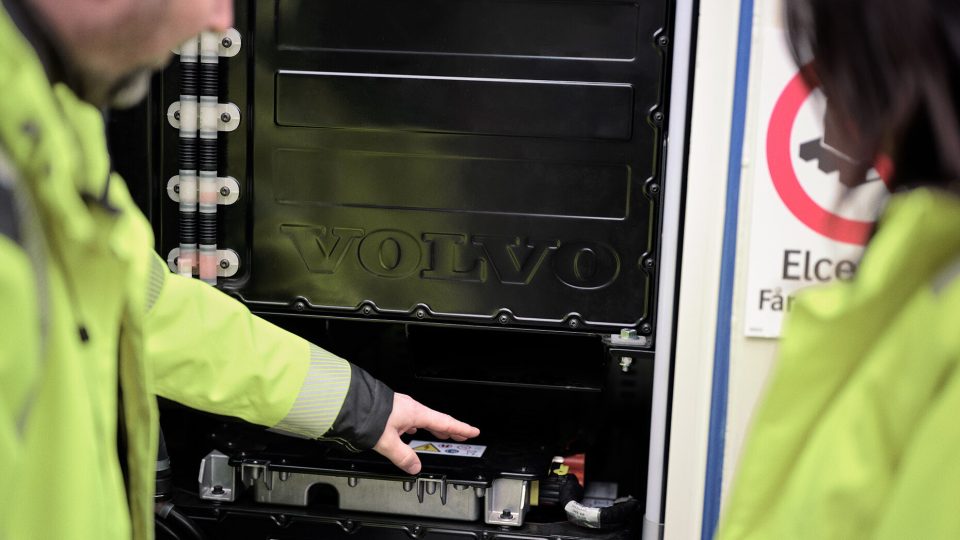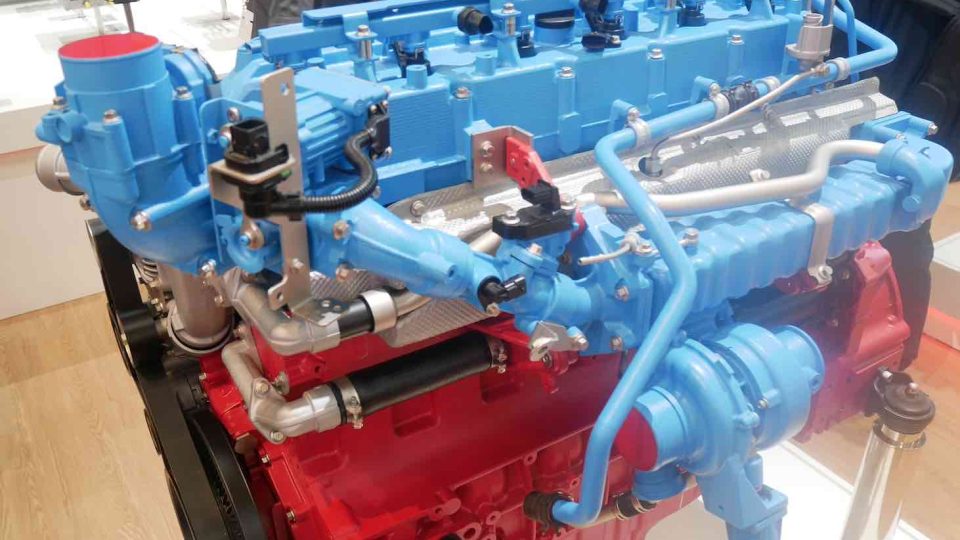Renewable diesel fuel from Bosch
Renewable diesel fuel, Bosch is making progress Fully renewable diesel fuel is powering, since early November, the cars chauffeuring the management board members of Bosch. The name is ‘C.A.R.E. diesel‘, this fuel is a synthetic one, mainly coiming from by-products and waste materials. Its supplier Toolfuel claims that C.A.R.E. diesel reduces the CO2 emissions by […]
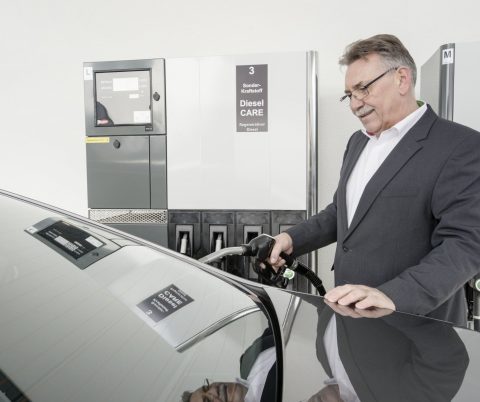
Renewable diesel fuel, Bosch is making progress
Fully renewable diesel fuel is powering, since early November, the cars chauffeuring the management board members of Bosch.
The name is ‘C.A.R.E. diesel‘, this fuel is a synthetic one, mainly coiming from by-products and waste materials. Its supplier Toolfuel claims that C.A.R.E. diesel reduces the CO2 emissions by around 65 percent, from well to wheel.
Volkmar Denner, CEO of Bosch, said: «Renewable and synthetic fuels can contribute greatly to limiting global warming. Their use has a much faster ecological impact than replacing vehicles and infrastructure, as existing filling stations can remain in operation. Synthetic and renewable fuels should soon be part of the CO2 fleet regulation for passenger cars and trucks».
MR DENNER, YOU’RE A MAN OF YOUR WORD!
C.A.R.E. diesel is not included yet in the German law on the prevention of airborne pollution. For this reason it is not currently available at regular filling stations. In its trials with fully renewable diesel, Bosch wants to show its possible adoption on a broad scale.
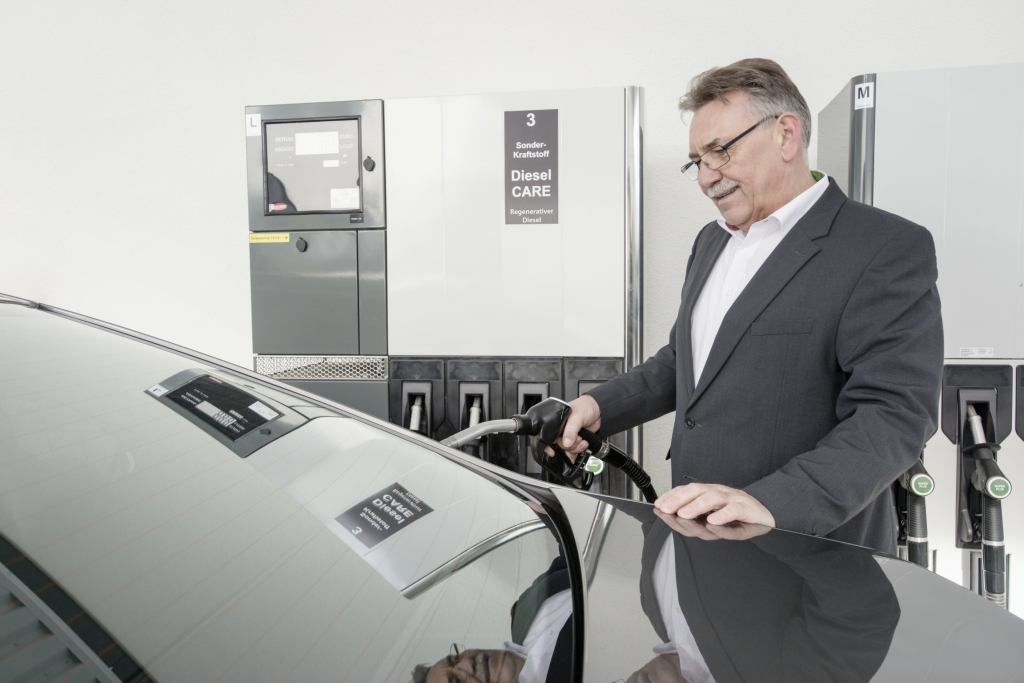
Bosch is already testing filling stations
The company is encouraging the use of renewable and synthetic fuels. R33 Blue Diesel, made by Shell, has been available for trial and company car pool vehicles at the filling stations at the Bosch locations in Feuerbach, Schwieberdingen, and Hildesheim.
The renewable diesel fuel from Boschfuel contains up to 33 percent renewables. The carbon footprint of the more than 1,000 Bosch vehicles that regularly refuel at these three filling stations could thus go down up to 20 percent from well to wheel.
On top of that, Bosch aims to make synthetic and renewable fuels available for company cars and internal delivery vehicles at all its company filling stations across Germany. The supplier of technology and services is also gradually incorporating battery-powered electric vehicles into its fleet.
ALSO MAZDA IS INVESTING IN DIESEL
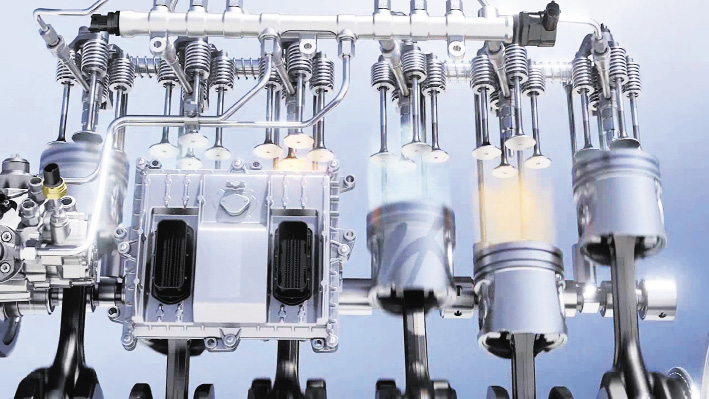
Fewer diesel vehicles means more CO2 emissions
It is not a secret that road traffic contributes to the greenhouse effect. On the upside, there has been some progress recently. In Germany, the CO2 emissions of newly registered vehicles have fallen by one quarter since 2007. On the downside, the CO2 emitted by traffic on European roads is rising again. One reason for this is the shrinking share of newly registered diesel vehicles.
Diesel vehicles have a great advantage over gasoline models when it comes to CO2 emissions. Compared with its gasoline variant, a diesel model’s carbon footprint is around 15 percent lower on average.
«We need diesel and other solutions such as renewable and synthetic fuels in addition to electromobility to further reduce greenhouse gas emissions» Denner says. According to Bosch, if renewable and synthetic fuels were widely used by European passenger cars, this alone could save up to 2.8 gigatons of CO2 by 2050, and that is without electrification factored into the equation.





